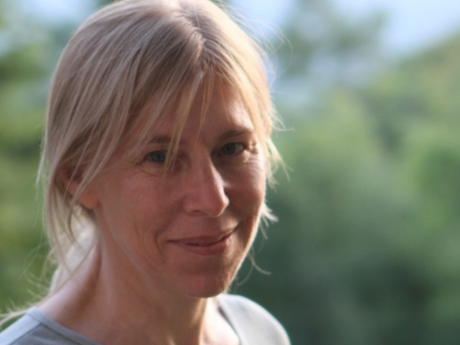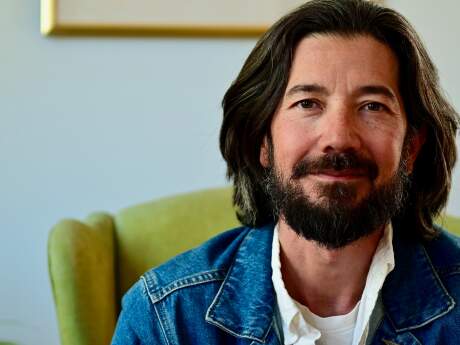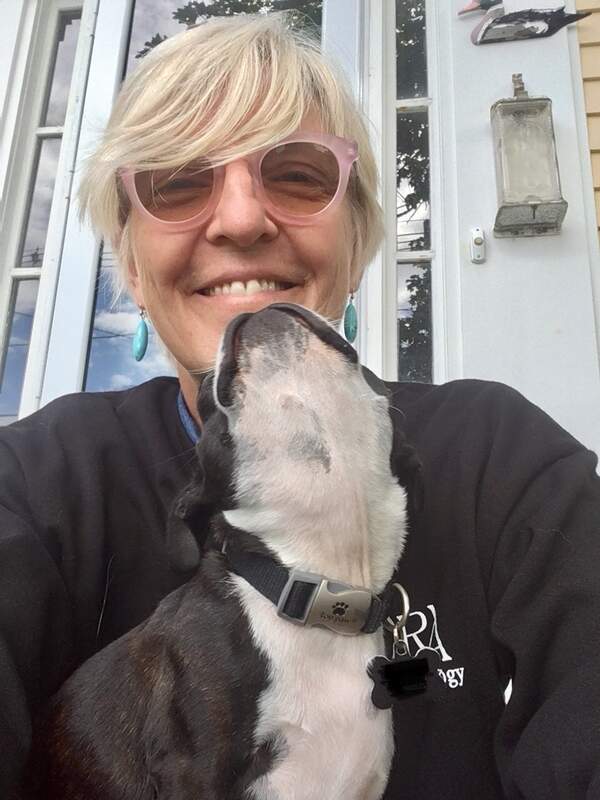Stopping By
Stopping by with Alissa J. Rubin

Alissa J. Rubin covers Climate and Conflict in the Middle East for The New York Times. In her 15 years at The Times, she has served as a bureau chief in Baghdad, Kabul and Paris and before that covered conflict in the Balkans. In 2021, she was a Nieman Fellow at Harvard University. Rubin is the winner of a 2016 Pulitzer Prize for international reporting; the 2016 Michael Kelly award for reporting on the treatment of women in Afghanistan; the 2015 John Chancellor Award for journalistic achievement; a 2010 Overseas Press Association award for a piece on women suicide bombers titled “How Baida Wanted to Die,” and a 1992 Washington Monthly award for a piece that appeared in the Washington City Paper, “What People Talk About When They Talk About Abortion.” She lives in Paris with her husband.
What is the last thing that moved you?
A friend recently gave me a copy of Natasha Trethewey’s book of poetry titled Monument. I could not stop reading it. The haunting poem “Graveyard Blues” written in iambic rhymed triplets—not a single rhyme forced—is just one of the many stunning poems in this volume.
What is a poem that changed or greatly influenced your life?
There are many, but one would be Constantin Cavafy’s poem “Ithaka.” It took a classical story and was at once true to it and cast it in a new way. It ratified my sense, which I often hesitate to express because it sounds odd, but that the classics of ancient Greece are startlingly modern; sweeping; perceptive about our psychology, our violence as human beings, our sexuality. And, they are filled with sometimes gripping, sometimes beautiful poetry. The poem also reassured me that living life as a quest—although unconventional can also be honorable and reveal so much of the richness that is there for the taking, if only you dare to open your senses to it. I have often been accused of running away as I traveled for my work as a journalist. Cavafy’s poem “Ithaka” gave me courage and allowed me to see that the exploration, if done consciously and with both heart and mind, even if I never reached the destination, could be everything. The search was the point, not the arrival. In my mind that translated into, never stop working, never stop looking and listening and feeling.
What is your first memory of poetry?
Learning to recite by heart “Stopping by Woods on a Snowy Evening” or “The Road Not Taken” both by Robert Frost. I can’t recall which was my first. Both are with me still.
How have the last few years changed you and what will you take with you into a post-pandemic world?
I spent time alone and found that I liked it far more than I had realized and in fact that I needed time alone to be able to write, to hear my own thoughts. In the course of that alone time, I also began to meditate, which was something new.
Who or what is your greatest creative influence?
There is no one great creative influence. But if I think of fiction, there is no work that I go back to as often as the short stories of Anton Chekhov. They are a marvel. Similarly, the short stories of James Joyce. Every one of them amazes me with its immediacy.
If you were to choose one poem or text to inscribe in a public place right now, what would that be? And where would you place it?
I have struggled to come up with one poem or text as there are too many. There is no one poem and no one place to inscribe a poem. Poetry is part of our common language; in most people’s daily account of their day there is a phrase, a line, an image that is more than what it seems; that echoes, looks back and forward and tells both of that person’s life, and of all our lives—and that is poetry.
If I could inscribe one word on every schoolhouse door, every place of employment, every home and place of government, it would be “listen.” Listen to others, to those you love and those you hate, listen to the land, the trees, the winds; listen to music and traffic and the sound of waves, but especially listen to those around you. And in that listening try to imagine yourself into others’ lives, feel others’ strifes, ache with others’ sorrows and ambitions, hear the world. It has so much to give us.
What do you see as the role of art in public life at this moment in time?
Art writ large, the arts, are necessary for understanding the world. Sheer facts are unmoored from emotion and small bits of news do not stick to our brains. Stories stay with us—whether they be in the form of paintings or sculptures, plays or music, poetry or prose. They remind of us of beauty and help us to see the world in new ways. Art can touch where reason leaves us cold.
What do you want people to take away from your work?
I want to take them to places they cannot travel themselves. I want to make them feel for people whose lives might otherwise seem distant or even alien from their own. I want to make people consider viewing something differently that they thought they knew.
Are you working on anything right now that you can tell us about?
Right now I am writing about how climate change disrupts people’s lives, destroys land and water and ultimately will force us to change our way of living and working. I am writing about a nightmare that humans made and that only we can ameliorate.
What are you hopeful for?
I am hopeful about some things that are personal and others that are societal. I am hopeful that as a society we have begun to understand the limits of the world we see on the internet and will ask more often to experience life for ourselves rather than virtually.
Personally, I am hopeful that I will have the confidence to keep delving into new subjects, exploring new places and trying out ways to write that are more and more incisive, evocative and compelling.


